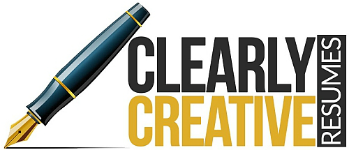
Blog Space
A quick word about our blogs:
In this section we aim to offer learnings, advice, and some tips and tricks for anyone who has embarked on their job search. We hope that the information you read here can benefit you even if you are not looking to hire a professional resume writer or use our services. We care, and we want you to be your best self from the moment you apply for a job to the moment of your first interview and your offer acceptance! We believe in you and know that having the right tools and resources will help you build your confidence and land that job that you are meant to have!
With kindness and gratitude,
Clearly Creative
You Got the Offer… Then Nothing
You get the call. The offer is coming. You celebrate, maybe even turn down other interviews. Then silence. No contract. No response. No explanation. Crickets…
The Job Market Is Shifting. And So Should You
The job market is changing fast. Job postings look different, recruiters are quieter, and professionals are starting to rethink what stability really means. If you have been job searching or even thinking about your next move, it helps to understand what is actually happening in today’s market and how you can stay ahead.
Crack the ATS Code: Resume Keywords That Actually Get You Noticed
That Resume Black Hole Feeling
You send off your resume, feel pretty good about it… and then—silence. Literally, crickets. No callback. No “thanks, but no thanks.” Just a total black hole. Here’s the thing: it’s not always your experience that’s the issue. It’s the tech standing between you and the recruiter. Most companies use something called an ATS (Applicant Tracking System). Basically, it scans resumes for the right words before a human ever lays eyes on them.
Don’t shrink after a bad interview, instead be empowered
One bad interview doesn’t define you or your value - you are still worthy of holding your head up high. You’ve done all you could and most importantly you showed up, even on the tough days. You have skills that you’ve mastered and skills that you’re still building. You are human and sometimes you will make mistakes.
Is it okay to lie on your resume?
We get asked this question very often when we do introductory calls: “Is it ever okay to lie on my resume?” No judgements here because this is a very valid question. We would rather you ask than assume.
Our answer is and always will be, “It’s never okay to lie on your resume.” Even if you have gaps on your resume or you feel as though there’s no way out, there’s always a way.
Stuck in your current job past its expiration date?
If you are someone who has been wrestling with the thought of finding a new job, but just haven’t gotten around to looking at those Classifieds as yet, we’re here to help you unpack this.
Looking for a new job even though you know it’s time, can be challenging based on your circumstances. With that being said, just how do you know when and if it’s the right time?
8 Signs of a Toxic Work Environment
A toxic work environment is just that, it’s an environment that is harmful to you and can manifest itself in many ways. Here are some signs to look for to determine whether or not you’re in a toxic work environment.
How to remain motivated when working remotely
Working from home can be a dream for many. On one hand, you have all the flexibility that you need and you can work free of interruptions and be extremely productive. For others who are more extroverted for those of us who thrive in an office environment, it can be utterly boring and can be tricky sometimes trying to find ways to remain motivated while working remotely.
Here are seven tips (as always tried and true) that can help keep you motivated while working from home.
The cover letter: a resume’s best friend
Your cover letter is your “resume’s best friend,” and will be its friend until the end. There has been so many debates around whether or not you need a cover letter with your resume when applying for jobs. We are going to tell you right now, that you absolutely need a cover letter to accompany your resume.
Now what exactly is a cover letter? Think of your cover letter as an your introduction to the employer.
What is your greatest weakness?
We recently conducted a poll asking job candidates to share their least favorite interview question. Going by the subject of this blog, you can probably figure out what that question was. Drumroll… The results were almost unanimous. The most dreaded interview question to be asked during an interview is: What is your greatest weakness? As a result, most candidates are caught off guard when asked and their responses usually fall short of what is required.
5 tips to get over imposter syndrome when interviewing
Trying to get through life with its daily challenges is tough enough. It doesn’t make things any easier when we get our occasional moments of self-doubt, fear, and the times where we just don’t feel like our efforts are good enough. Have you ever felt this way about interviewing?
Ghosted by a recruiter? What to do when you are…
You’re excited about a job opportunity. You apply with enthusiasm and you’re just buzzing with excitement. Woo! However, this enthusiasm slowly starts to wane when you don’t hear back. It’s been days, weeks, months and not a word…Why is this happening to you? What do you do?
Being ghosted by a recruiter is a sticky subject, but we had to write about it. More and more we are hearing from our clients that they have been applying to positions and not hearing back from HR or the recruitment team to acknowledge receipt of their applications/resumes or to provide an update. Not only have they not heard back about an application, but they go on interviews and they don’t get an update.
Socializing at work…where to draw the line?
We have been living in a very socially charged world ever since our delayed (“staggering” may be a better word) departure from the pandemic. This phenomenon has made its way into the workplace where companies now want to see their teams more engaged and socializing at work.
The idea here is that to keep people “happy” and productive, you need to give them a reason to want to come into work, a reason to make work fun, and create a strong company culture. However, sometimes it can be tricky navigating your way around work socials and interactions with colleagues. Just where do you draw the line and “how social” do you need to be?
No job experience? No problem!
We have received a lot of messages from candidates and prospective clients concerned about not being able to write a resume when they have no job experience. This is always a tough one because most employers want you to have experience when you apply for a job. But, here's the conundrum: how do you get experience if no one will hire you?
How to handle two competing job offers
Picture this:
You spent the past 7 months and 4 days looking for a new job. You know this time down to the exact, because you’ve been counting. You applied to over 100 positions; you were only called for 6 interviews. Again, you've been counting.
You now find yourself on a call with a recruiter who is telling you “Congratulations! We want to hire you!”
How to earn your next promotion
Have you been in the same role for too long and you’re looking for a change? Or, do you just want more from your career? Here are 10 tips that can help you earn your next promotion.
1. Work hard
This one might seem obvious but sometimes it’s easier said than done. Not everyone gets a promotion. The ones who do are the ones who do are the ones who put in the effort and go above and beyond. They are the ones who show value. Aim to continuously have a positive attitude and let people notice how hard you’re working. Have a strong work ethic and don’t forget to use your soft skills. Show creativity, the ability to think on your feet, and how great you are at solving problems.
Push vs. Pull?
"Why do you want to work here?"
Have you ever been asked this question before? Undoubtedly if you have ever applied for a job or attended an interview you would agree that this is one of the first questions you were asked. Although this question seems easily structured, it is one of the most difficult questions to answer. The dilemma: you want to give an honest answer, but you are also concerned that the answer you give may not be the response that the interviewer or recruiter wants to hear. You are worried that you will give the wrong answer.
Employers ask this question to really gauge your interest in their company and the job so how you answer is prime.
Interview with confidence
Some people are naturally great at interviews and some just aren't. In my line of work, I advise candidates to always prepare for an interview, no matter how great you think you are or how good of a fit you are for the role. Additionally, if you are someone who do not have have a good track record of excelling interviews (i.e. they make you cringe and you start sweating in the all the wrong places!) it’s highly recommended that you begin your prep even before you have an interview if you are someone who don’t have an interview scheduled.
Think about it this way, if you are not a runner, but you wanted to run a 5KM race to support a charity or to engage in a community run, would you start your practice runs 1-2 days before? You could, but chances are, on race day, you won’t do very well. You will finish but you won’t finish with a good time and you will feel exhausted. Similarly with an interview, you need to start practicing so you can feel comfortable with your responses and feel comfortable on “interview day.”
Here are some things that you should consider when you’re doing your prep and on the day that you interview that can help:
Work from home and protect your mental health
Burnout is real…I’ll stop here and wait for that sentence to sink in.
Still waiting…
Okay… There has been so much talk about burnout and mental health in the workspace lately. This a conversation that has undoubtedly been climaxed by the “work from home phenomenon” among many other residual effects of the pandemic. Let’s talk about how working from home went from, in some cases, to being aligned to “fun, flexible, autonomous” to long days, no breaks, and an over heightened sense of anxiety. Let’s assess two major ways in which, if not managed correctly, remote work can negatively affect your mental health:
n the top with pajama bottoms. Classic.
Job market got you down?
I came across a recent posting on one of the forums that I frequent. This posting really got me to thinking. It is still a very tough job market out there for candidates. Sometimes, it can even feel like the job market “doesn’t have your back.” The big tech companies aren’t the only ones who are now having to downsize; all organizations of different sizes are facing this predicament. Like the individual in the post and like many other posts I see and even people I speak with everyday, people are feeling like they are at their wits end. The tunnel has closed…there is no light. No hope, not even a glimmer.
After submitting thousands of applications (yes, thousands based on length of layoffs), it feels like you should just pack it in/throw in the towel. Tough reality to swallow, isn’t it? But just how do you keep going and keep yourself afloat? While the timeline for getting hired is something that you have no control over, here are somethings that might be worth focusing on that you can change, while you wait.




















